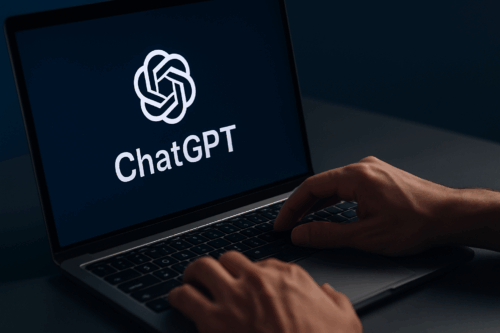
ChatGPT Takes a Bold Turn: What It Means for AI and Safety
OpenAI is preparing to make one of its most controversial updates yet. Starting December, verified adult users will be able to generate erotic content on ChatGPT. The decision, announced by OpenAI CEO Sam Altman on X, marks a major shift in how the company views creative freedom, safety, and user control.
Altman said OpenAI wants to “treat adult users like adults,” allowing more expressive and human-like interactions. The new policy follows months of testing age-gating features and mental health safeguards designed to prevent misuse of the AI.
A Shift from Restriction to Responsibility
When ChatGPT first launched, it operated under strict content moderation to protect users from harmful or explicit material. That approach often frustrated users who wanted the chatbot to sound more natural or creative.
According to Altman, the company initially chose caution to avoid worsening mental health risks among vulnerable users. But OpenAI now believes it has stronger tools to detect and respond to risky behavior. That confidence is driving the December rollout, which will introduce erotica only for verified adults through an age-prediction and verification system.
How the System Will Work
OpenAI’s new age-gating feature will use behavioral signals to estimate a user’s age. If the system incorrectly flags an adult as a minor, users may be asked to upload an official ID to confirm their age. Altman admitted that this is a privacy compromise, but one the company sees as “a worthy tradeoff” to keep minors out of adult zones.
Erotic content will not appear by default and will only be generated upon user request. OpenAI also says ChatGPT will continue to monitor for signs of distress or instability and restrict access if a user shows concerning behavior.
The Larger Implications for AI
The move signals a broader evolution in how AI companies approach digital intimacy and user autonomy. Platforms such as Character.AI and Replika have already shown how romantic or erotic chatbots can attract millions of daily users. For OpenAI, this update could boost engagement and expand ChatGPT’s appeal in a competitive AI landscape led by Google and Meta.
However, the shift also raises difficult questions. Can AI responsibly handle erotic content without exploiting emotional vulnerabilities? How will privacy and consent be managed in conversations that blur the line between fantasy and reality? These questions highlight the delicate balance between technological progress and psychological safety.
A Step into Uncharted Territory
While ChatGPT’s new policy focuses only on text-based erotica for now, it’s unclear whether similar permissions will extend to AI-generated voices, images, or videos in the future. If that happens, the discussion around digital relationships, consent, and AI companionship will grow even more complex.
Critics warn that AI erotic interactions could normalize emotional dependency or unrealistic expectations. Supporters argue it’s simply an extension of adult creative freedom — a use case that should be managed responsibly, not banned.
Balancing Growth and Safeguards
OpenAI’s decision comes as it faces pressure to maintain growth and justify its massive infrastructure investments. With ChatGPT already serving over 800 million weekly active users, introducing adult features may deepen engagement among older audiences.
But the company must walk a fine line. Expanding creative freedom while protecting vulnerable users will require precise moderation, transparent oversight, and continuous ethical review. To address this, OpenAI has formed a council of mental health professionals to advise on well-being and AI usage patterns.
If executed well, the December rollout could redefine the relationship between humans and AI — one that treats maturity as a feature, not a risk.
Conclusion
ChatGPT’s erotica rollout is more than a product update. It reflects the next phase in AI evolution, where freedom, safety, and ethics intersect. As AI becomes more personal and emotionally aware, the question isn’t just what it can say — but how responsibly it should say it.
